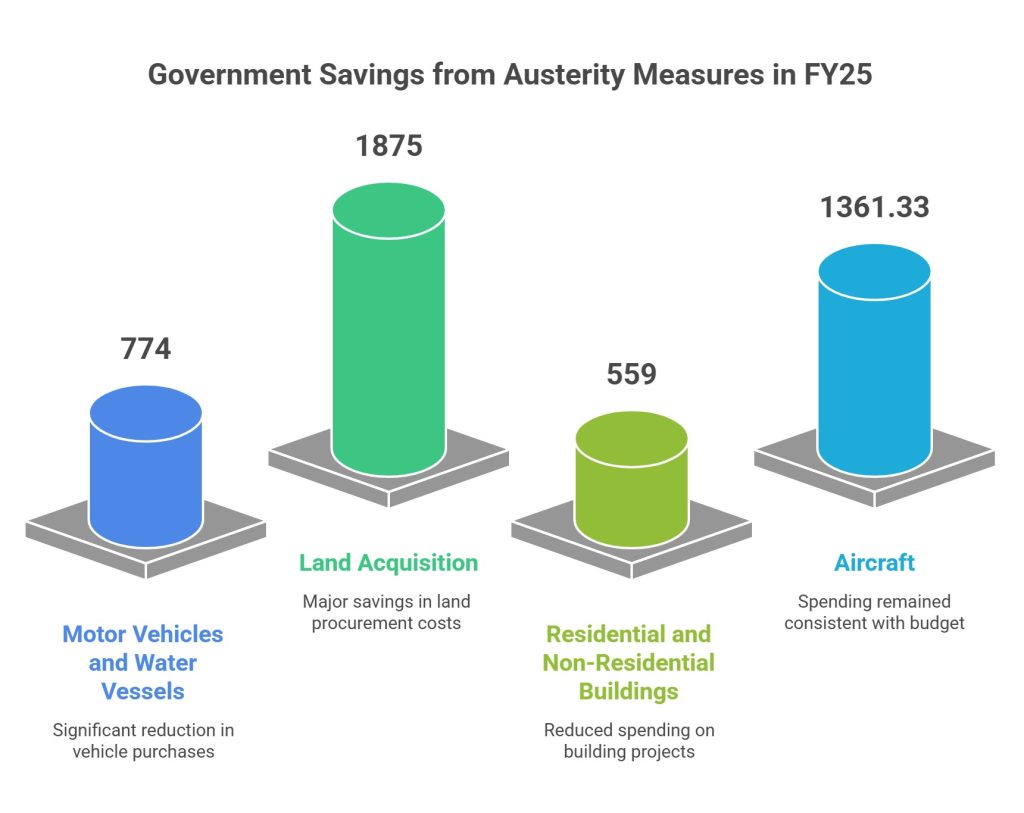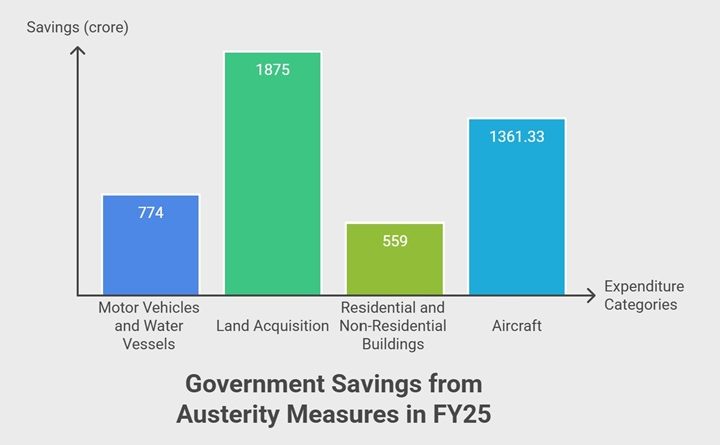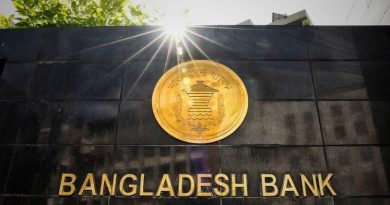The government reduced its spending by 25 percent, saving Tk 5,689 crore in the 2024-25 fiscal year, more than double the Tk 2,500 crore saved a year earlier, as part of ongoing austerity measures.

Finance ministry data show that while the development and non-development budget for energy, buildings, vehicles, and land acquisition was Tk 22,756 crore, actual expenditure stood at Tk 17,067 crore. Major savings came from motor vehicles and water vessels (down 75 percent to Tk 774 crore), land acquisition (Tk 1,875 crore), residential and non-residential buildings (Tk 559 crore), and reductions in electricity, petrol, oil, and lubricants. Aircraft spending, however, remained largely unchanged at Tk 1,361.33 crore against a budget of Tk 1,369.6 crore.
Prof Selim Raihan, executive director of Sanem, noted that cutting costs on unnecessary purchases like vehicles was positive but cautioned that the impact on essential services such as health and education should be monitored. He added that restoring economic vibrancy and stimulating private sector investment is crucial for the effectiveness of austerity measures.
The interim government is continuing the austerity policies in FY26. A July circular imposed restrictions on foreign travel, vehicle purchases, land acquisition, and construction of new buildings, with exceptions for health, education, and agriculture sectors. Ministries can only proceed with projects or purchases already over 50 percent complete, subject to Finance Division approval.
The cost-cutting aligns with contractionary monetary and fiscal policies adopted by the Bangladesh Bank and Finance Division to address high inflation, which fell to 8.29 percent in August after 27 months of remaining above 9 percent.
Revenue shortfalls were also cited as a key factor for the measures, which continue to limit block allocations under the operating budget. Foreign travel for essential purposes and development-related expenditures may still proceed with prior approval.
The government’s belt-tightening, first introduced during the Covid-19 crisis in 2020 and maintained through subsequent shocks such as the Russia-Ukraine war, reflects a strategic approach to stabilise public finances while prioritising critical sectors.






